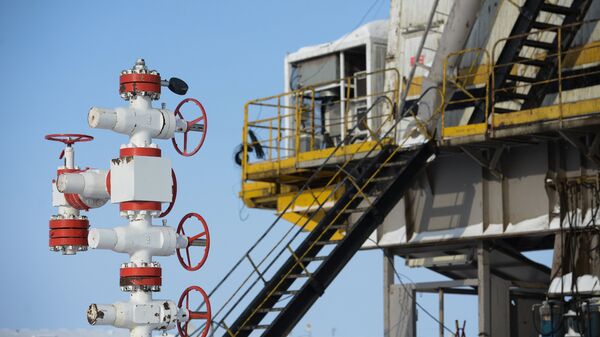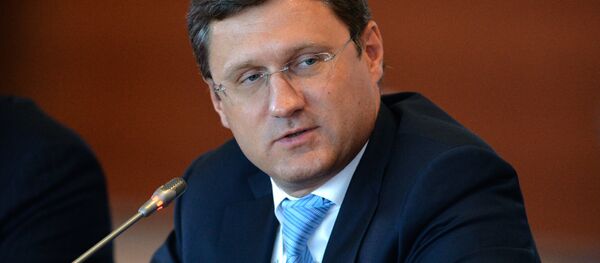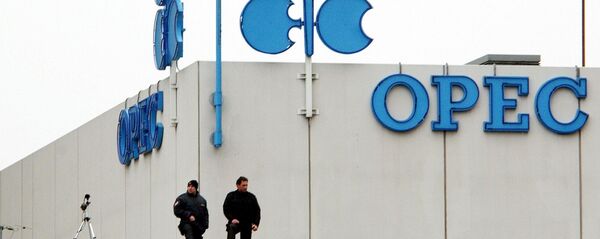MOSCOW (Sputnik), Anastasia Levchenko — On Wednesday, the OPEC states reached an agreement to freeze daily oil output for the whole organization to between 32.5 million and 33 million barrels a day, in order to stabilize plunging oil prices. The decision was reached for the first time in eight years and came as a surprise to many observers.
Deal Reached, Devil in Details
Although the deal has been agreed on, issues remain on how it is going to be implemented.
OPEC decided to set up a special committee to split the reduction in production among members by November, when the cartel will have the next formal ministerial meeting in Vienna.
"OPEC’s decision to cut production does illustrate the level of fiscal pain many of the member states are going through… However, there still remain two key uncertainties. Can OPEC deliver this reduction and will it be enough to stabilize the oil price? It is not clear which producers will be required to make the cuts," Director at PricewaterhouseCoopers’ (PwC’s) Strategy and Consultancy Adrian Del Maestro told Sputnik.
In the Wednesday agreement, OPEC states agreed to give preferential treatment to Iran, Libya and Nigeria.
"Iran seems to have softened its position and now wants an exemption from a deal to cut 'close to 4 million barrel a day' instead of 4.2 million barrel a day previously," Herman Wang, a senior OPEC specialist at S&P Global Platts, told Sputnik.
Apart from geopolitical tensions, what makes experts cautious about calling the deal a breakthrough is the size of the pledged reduction.
"The higher end of what they agreed today suggests a cut of some 700,000 barrel a day. This is probably at the lower end of what the market requires. So there is a risk should OPEC successfully execute on their commitment, the impact on prices might be limited," Del Maestro stressed.
On Wednesday night, oil prices reacted immediately on the freeze deal announcement, and jumped to $49 per barrel, close to $50 psychological threshold. That, however, can be a short-term effect of the very announcement of the freeze.
"Platts Analytics' Bentek Energy estimates that oil prices could be as much as $10 per barrel higher in 2017 given a sustained cut of 700,000 barrel a day based on current demand and supply fundamentals. It cautions, however, that OPEC member compliance with a cut deal is an open question and that non-OPEC supply expectations could be revised higher as producers respond to higher prices," Wang noted.
Shale Drillers to Be Encouraged
So far, the Saudi-led OPEC strategy of keeping the output high put pressure on shale oil producers, primarily from the United States, and pushed pricey production out of the market share.
"The US shale oil producers have felt the pain of lower prices but the industry has proved itself resilient enough to survive. Any price recovery will be welcomed by this sector given their demise had been forecast in the past by some," Del Maestro explained.
Earlier in September, Russia's Finance Minister Anton Siluanov warned that an agreement between members and non-members of OPEC could lead to increased shale output and ultimately sink prices.
Non-OPEC countries are expected to consider OPEC final proposals on the market and the possibility of joint actions after November ministerial.
"As crude prices recover, more shale plays become financially profitable and thus production is likely to be on the up again in the US," Wang said.
In April, major oil-producing states failed to reach an output-freezing agreement in Doha, Qatar.
Global oversupply and stagnating demand have caused oil prices to plunge from $115 per barrel in June 2014 to less than $30 per barrel in January 2016. Prices recovered amid Nigeria and Venezuela's output outages and growing demand in May, reaching a peak of over $50 per barrel in early June.







